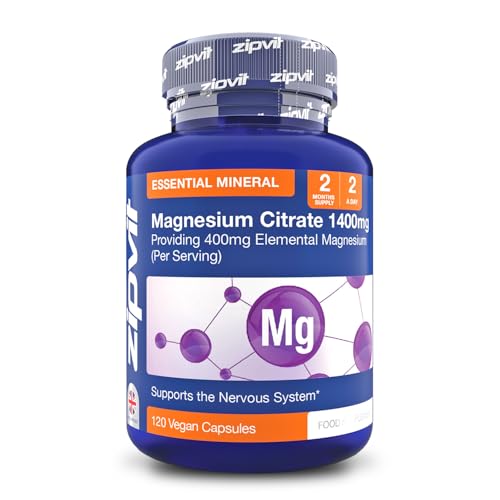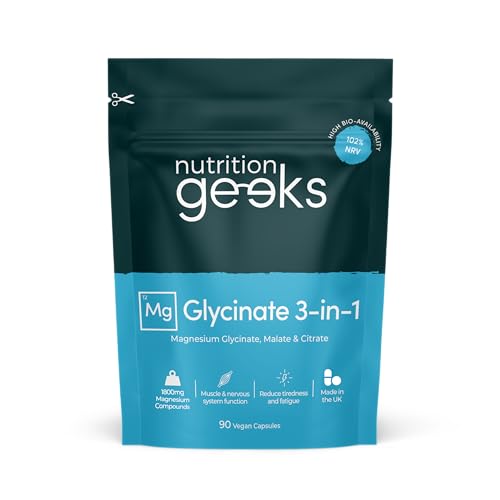Understanding Magnesium Citrate: What It Is and How It Works
What Is Magnesium Citrate?
Magnesium citrate is a natural mineral compound that combines magnesium with citric acid. It is often found in the form of a supplement to help boost magnesium levels in the body. Magnesium itself plays a critical role in numerous bodily functions, including muscle and nerve function, blood sugar control, and bone health. When we take magnesium citrate, our body can absorb it more easily due to its soluble nature, making it a popular choice for those looking to improve their overall well-being.
How Does Magnesium Citrate Work?
The way magnesium citrate works in our body is quite fascinating. Once ingested, it dissociates into magnesium and citrate ions. The magnesium ions then enter our bloodstream and contribute to various biochemical processes, such as energy production and muscle contraction. The citrate component helps facilitate the absorption of magnesium, ensuring that we reap the full benefits of the supplement. Many also find that magnesium citrate can promote digestive health, as it has a mild laxative effect.
The Benefits of Magnesium Citrate: Why We Should Consider It
Improved Energy Levels and Mood
One of the primary benefits of magnesium citrate is its ability to improve energy levels. Magnesium plays a vital role in converting food into energy, so ensuring we have sufficient magnesium can help us feel more energetic throughout the day. Additionally, many individuals report that magnesium citrate can help improve mood and reduce feelings of anxiety. This is likely linked to its role in neurotransmitter function and hormonal balance.
Support for Muscle and Nerve Function
Another significant advantage of magnesium citrate is its support for muscle and nerve function. It helps muscles relax and can prevent cramping, which is particularly beneficial for those who are active or exercise regularly. Furthermore, adequate magnesium levels are essential for optimal nerve transmission, which means magnesium citrate can contribute to better coordination and reaction times.
Digestive Health Benefits
For those struggling with digestive issues, magnesium citrate can offer some relief. It acts as a gentle laxative, helping to alleviate constipation and promote regular bowel movements. By maintaining digestive health, we can improve our overall well-being and nutrient absorption.
Choosing the Right Magnesium Citrate Supplement: Key Factors to Look For
Check the Formulation
When selecting a magnesium citrate supplement, it’s essential to examine the formulation. Some products may include additional ingredients like vitamin B6 or other minerals, which can enhance the benefits of magnesium. Always opt for a high-quality supplement from a reputable brand, as this ensures better absorption and effectiveness.
Consider the Dosage and Serving Size
It’s also important to pay attention to the dosage and serving size indicated on the label. Different brands may offer varying concentrations of magnesium citrate, so we should choose a product with a dosage that aligns with our health goals and needs. Starting with a lower dosage and gradually increasing it can also help our body adjust.
Look for Reviews and Recommendations
Lastly, we should consider customer reviews and recommendations when making our choice. User experiences can provide valuable insights into the effectiveness of a specific magnesium citrate supplement. A product with many positive reviews is more likely to reflect a quality supplement that can meet our needs.
Dosage Guidelines: How Much Magnesium Citrate Should We Take?
Understanding Recommended Dosages
When it comes to magnesium citrate dosage, we generally recommend following the guidelines provided on the product packaging. For most adults, a common dose ranges from 200 to 400 mg of magnesium per day. However, this can vary based on individual health circumstances, lifestyle factors, and dietary intake. It’s wise to consult a healthcare professional to determine the right dosage tailored to our specific needs.
How to Take Magnesium Citrate Correctly
Magnesium citrate supplements are usually available in capsule, powder, or liquid form. When taking magnesium, it’s beneficial to split the total daily dose into two or three smaller doses throughout the day, which can aid absorption and reduce the risk of digestive discomfort. Additionally, taking them with food can enhance the experience and improve overall tolerance.
Frequently Asked Questions About Magnesium Citrate: Answers to Common Queries
Can Magnesium Citrate Be Harmful?
While magnesium citrate is generally safe for most people, excessive intake can lead to gastrointestinal discomfort, such as diarrhea or cramps. It’s essential to stick to the recommended dosages and consult a healthcare professional, particularly if we have underlying health conditions or are pregnant.
Who Should Consider Taking Magnesium Citrate?
Magnesium citrate can be particularly beneficial for those experiencing low energy, frequent muscle cramps, or digestive issues. Additionally, individuals with physically demanding lifestyles or those who do not consume sufficient magnesium through diet may find supplementation helpful. It’s important to assess our specific health needs before deciding to use magnesium citrate.
Is Magnesium Citrate Safe for Long-Term Use?
For most people, magnesium citrate can be safe for long-term use when taken within recommended dosages. However, monitoring our health regularly and consulting with a healthcare professional is advisable, especially if we plan to use it as a long-term supplement.

























